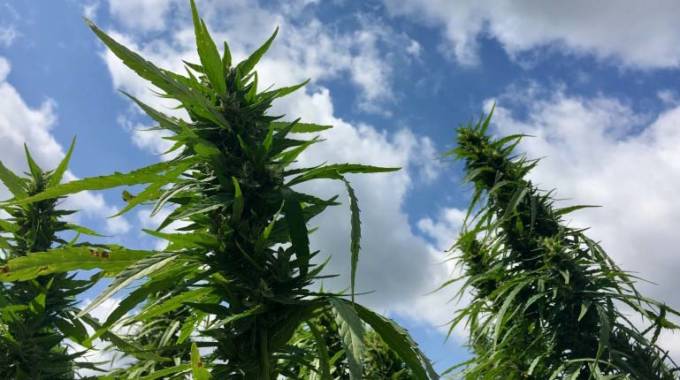
The Sunday Mail

Word from the Market
Cliff Chiduku
Last week, heads of state, ministers, negotiators, climate activists and members of civil society organisations met in the Egyptian coastal city of Sharm el-Sheikh for the largest annual gathering on climate action — the 27th Conference of the Parties to the United Nations Framework Convention on Climate Change (COP27).
COP27 was a follow-up meeting on the outcomes of COP26, which was meant to deliver action on an array of issues in tackling the climate problem. They include reduction of greenhouse gas emissions, building resilience, adapting to impacts of climate change and delivering on commitments to finance climate action.
Faced with a growing energy crisis, record greenhouse gas concentrations and increasing extreme weather patterns, there is need for action to save humanity. To overcome this emissions problem, adoption of regenerative agricultural practices, among them rotational growing of industrial hemp, is key.
Industrial hemp is believed to be an effective plant to sequester carbon from the earth and replenish degraded soils. In addition, industrial hemp is a fast-growing plant that does not require pesticides.
Zimbabwe Industrial Hemp Trust founder and chief executive officer Dr Zorodzai Maroveke said the country should take advantage of the ever-growing demand for environmentally friendly products to grow industrial hemp.
“Zimbabwe should take advantage of the fact that it is endowed with world-class farming expertise and fertile soils to ramp up industrial hemp production. The plant grows without the need for harmful herbicides and pesticides, and also replenishes soil quality.
“Hemp has low carbon emissions and is capable of capturing carbon emissions from the atmosphere, meaning that it is considerably better for the environment compared to other crops such as cotton,” said Dr Maroveke.
In 2019, the Government opened up space for the production of industrial hemp and medicinal cannabis. In line with Statutory Instrument 218 of 2020, the Agricultural Marketing Authority (AMA) has registered 84 industrial hemp players, 14 researchers, 47 cultivators and 23 merchants.
The main difference between industrial hemp and cannabis is on the psychoactive component – tetrahydrocannabinol (THC). Hemp has 0,3 percent or less THC. This means hemp-derived products do not contain enough THC to create the “high” traditionally associated with cannabis. The entry of more players in the industrial hemp value chain is likely to see an increase in production, which dovetails with the Second Republic’s plan to increase agriculture’s contribution to the gross domestic product from 12 percent to 20 percent by 2030.
AMA is working with relevant stakeholders to make sure Zimbabwe becomes one of the largest industrial hemp producers in the region. This will allow local farmers to secure a niche market for industrial hemp and related products. With most of the current production earmarked for export, industrial hemp provides a good opportunity for Zimbabwe to boost its foreign currency earnings.
ZimTrade chief executive officer Allan Majuru, who is also AMA board chairperson, said local companies should target value addition, focusing on processes that do not require huge investment, and export to countries that appreciate the nutritional benefits of hemp-based foods.
“There are more hemp-based products that local manufacturers can earmark for the export market. These are foods, hemp seed, hemp oil and hemp protein in the form of powder or flour. There is growing demand for hemp foods such as salad dressings, nutritional bars, bread, cookies, nut butter, corn chips, paster and ice cream in Europe, America and Asia,” he said.
Market
The Grand View Research estimates that the global industrial hemp market size stood at US$4,71 billion in 2019 and is expected to grow to US$15,26 billion by 2027, buoyed by huge investment towards production and high demand in hemp-based products.
Industrial hemp is also used in the automotive, construction, food and beverage, personal care and textile industries.
In Africa, currently, there are 12 countries that have legalised the growing of industrial hemp. They include Ethiopia, the Kingdom of Eswatini, Ghana, Lesotho, Malawi, Morocco, Rwanda, South Africa, Zambia and Zimbabwe. China, Italy, France and the Netherlands are some of the top industrial hemp-producing countries in the world.
With the call for a green economy getting louder, the demand for environmentally friendly crops such as industrial hemp will always be growing. As such, there is no doubt that the plant offers quick wins for farmers who are looking at diversifying their incomes.
Visit www.ama.co.zw for requirements to register as an industrial hemp player.
Word from the market is a column produced by the Agricultural Marketing Authority to promote market-driven production. Feedback: [email protected] or WhatsApp/Call +263781706212.



